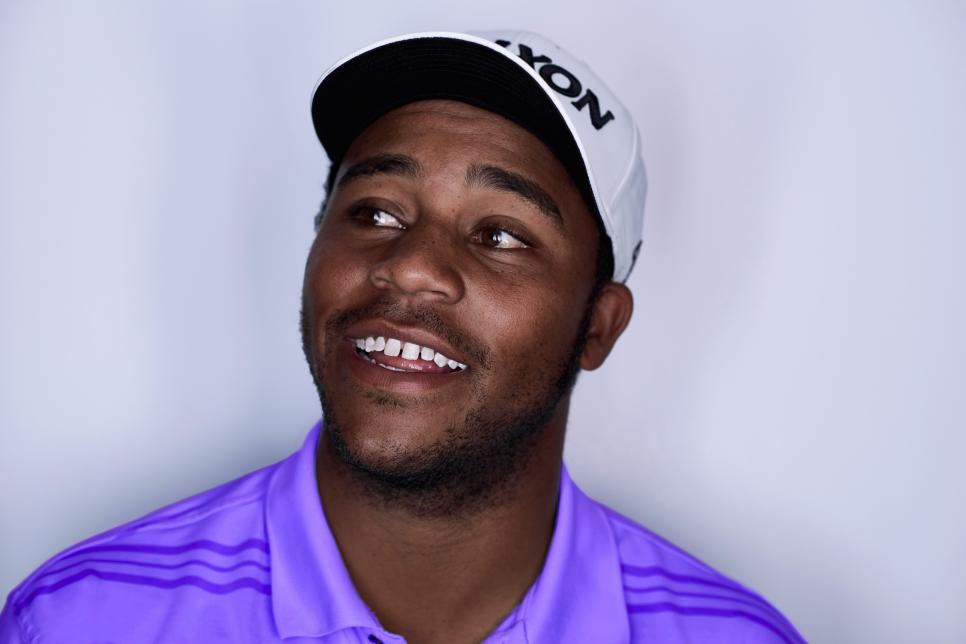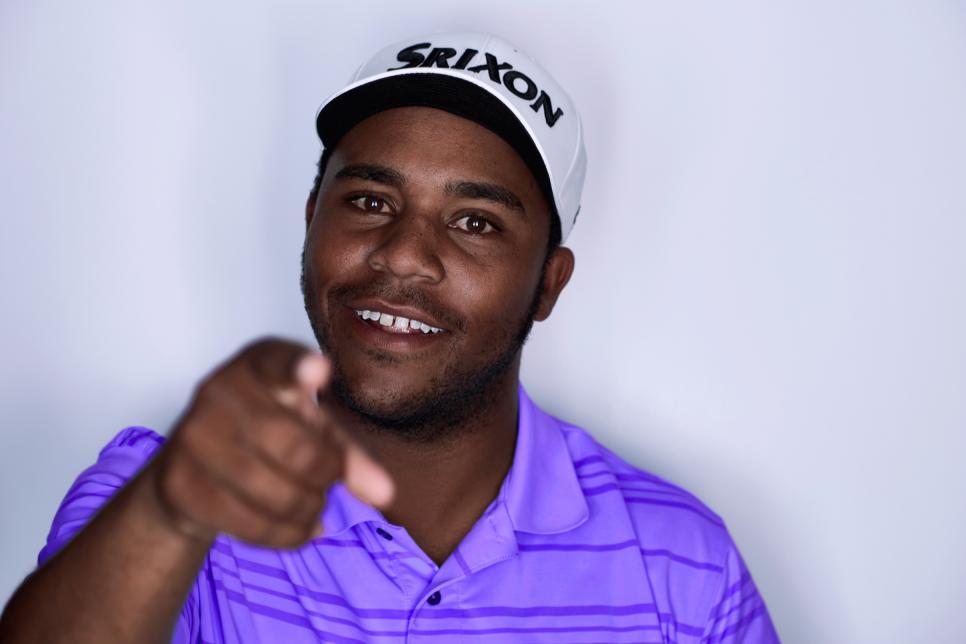Alone: Harold Varner III

Harold Varner III sat in front of his locker at the Golf Club of Houston going through the dreaded ritual of packing up his golf bag—dreaded when you're doing it on Friday. Varner had just missed the cut at the Shell Houston Open "by a million," in player-speak—eight shots on the leader board.
"I shot seven over par for two days, and I can honestly say I didn't have a bad time," he said with a smile. "I'm just not hitting the ball well, but I know it's there. I'm good at this game. I know it's in there, and I'll find it."
Most PGA Tour rookies would be beating themselves up after missing a fifth cut in seven starts. They wouldn't be fun to be around, either. Varner is fine.
"I play golf for a living," he says. "How can I complain?"
Varner is 25 and earned his spot on the PGA Tour last fall by finishing 25th on the Web.com Tour money list. When he teed it up at the Frys.com Open last October he was thrust into a new role: With Tiger Woods sidelined again by back surgery, Varner was the only active African-American player on tour. Which is fine—at least for the moment.
"People say to me, 'Do you know you're the only African-American on the tour?' And I say, 'No s---; tell me something I don't know,' " he says, laughing. "Hey, it's 2016, and we're still talking about this? Well, we are, and I guess we will be until there are more of us out here again."
‘You need more programs where you can go out and play for free, or for 100 bucks a year.’
Varner learned the game from his father, Harold Jr., who has sold cars for about 40 years. The son grew up outside Charlotte and played as a kid at Gastonia Municipal Golf Course (now Catawba Creek) for $100 a year.
"Could play anytime I wanted to, Monday through Friday," he says. "When I started to get good, the members would invite me to play on weekends."
Varner is a firm believer that one of the ways to get more minorities and kids from middle- and lower-income families involved in the game is through programs like the one he benefited from at Gastonia Municipal.
"I've spent time working with The First Tee," he says. "They do good work. But the program really isn't set up to get more kids to grow up to be good golfers. It's more like a daycare program; teach kids right from wrong. That's all good. But the sport is still too expensive. You need more programs where you can go out and play for free, or for 100 bucks a year. If you do that, all you really need to teach a kid about golf are the basics. Then, if he or she has the desire and the talent and the access, they can get good at the game. That's what I did."
After graduating from East Carolina with a degree in marketing, Varner spent two years on the Web.com Tour, finishing 30th on the money list in 2014 before grabbing the 25th—and last—regular-season big-tour spot last August. Some would have been tortured by that final Sunday outside Portland, Ore., where Varner was in and out of the top 25 as the afternoon wore on. He says he wasn't that nervous. "I played very well out there for two years," he says. "I believed if I didn't make it that day, I'd make it through the playoffs. I have a lot of confidence in myself."
Varner began his rookie season well, finding himself tied for fourth after three rounds of the Frys.com Open before a final-round 79 plummeted him to a tie for 48th. He bounced back to finish T-5 at Mayakoba and T-13 in Honolulu. After the slump that culminated in Houston, he made another check at Hilton Head and had a T-9 in San Antonio and a T-8 outside New Orleans that helped him move up to 66th on the FedExCup points list by early May.
"It's been an adjustment, like for any rookie," he says. "There's a lot more alone time on this tour. Guys do their own thing more. On the Web, people tend to eat together, hang out. Not so much here. But I get along with everyone. Least I think I do."
Players and tour officials all say the same thing: They like him, and they're rooting for him to succeed.
"We need more guys like him out here," says Steve Wheatcroft, who often plays Tuesday money games with Varner.
Wheatcroft was referring to Varner's personality. He could also have been referring to his race. Varner knows that.
"I don't want to be politically correct, I want to be correct when I'm speaking," he says. "I believe I can play a part in changing the history and the future of this tour."
He smiles. "At the very least, it's a good goal to have. And there's no reason for me not to achieve it."


